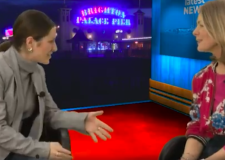In safe hands With the Montefiore Hospital

The Montefiore Hospital’s Dr Paul Farrant asks whether caffeine can stimulate hair growth
Hair loss has always been a prime market for the snake oil industry with men and women throughout history desperately trying to restore their crowning glory through applications of bizarre substances. Animal dung has been popular and indeed camel urine is still touted as a wonder treatment in some circles. One of the most recent so-called breakthroughs is coffee shampoo – with our current obsession with the stuff I guess it only had to be a matter before we started putting it on our heads.
The scientific part of the caffeine shampoo theory comes from a paper published in 2007 by a researcher named Tobias Fischer. His study looked at the effect of adding testosterone and caffeine to artificially grown hair follicles. We already know that dihydrotestosterone – a substance made by testosterone – can damage hair follicles, resulting in male pattern baldness. Fischer’s study showed that adding testosterone slowed hair growth but caffeine seemed to reverse this negative effect. Caffeine also seemed to promote hair growth when used alone.

Separate studies have also demonstrated that caffeine penetrates easily through the skin. A match made in heaven for the commercially minded, who armed with the evidence, created caffeine shampoos as a solution to balding men. But do they actually work?
The answer is we don’t know. There are no good studies in humans using a caffeine shampoo compared with a placebo shampoo. The differences are likely to be small, if any, and therefore the study design would need to have a lot of people and a robust way of measuring improvement. Both are difficult and this would be expensive to conduct.
So is it worth giving it a go? Caffeine shampoos are likely to do little harm but they are also relatively unlikely to help that much. The hair bulb which is the lower part of the follicle is where testosterone and dihydrotestosterone have their effect. Caffeine would need to penetrate right down to the bulb and then stay there for long enough to have a positive effect. In Fischer’s study, the
hair follicles were bathed in the solution for eight days – clearly not practical for people in the real world.
If caffeine is readily absorbed into the blood the effect may be lost and if it isn’t lost, surely having a cup of coffee or can of cola would do the same thing. Like most things promoted for hair growth a healthy level of scepticism is warranted and good clinical trials are needed. I would stick to drinking my espresso for now.
Dr Paul Farrant is a Consultant Dermatolgist at the Montefiore Hospital in Hove. He has a special interest in hair loss and treats Alopaecia in both men and women. For further information please contact the Montefiore Hospital on 01273 828120 or visit www.themontefiorehospital.co.uk





















